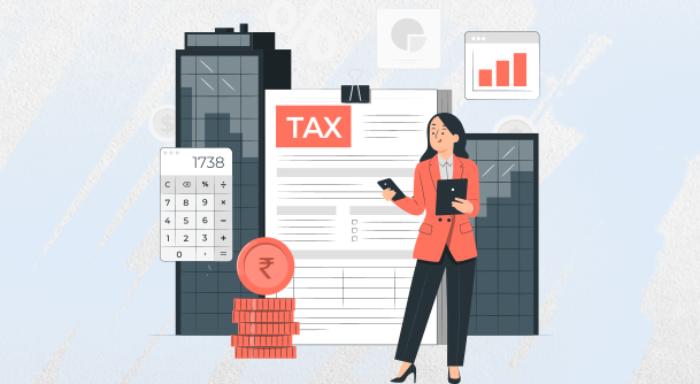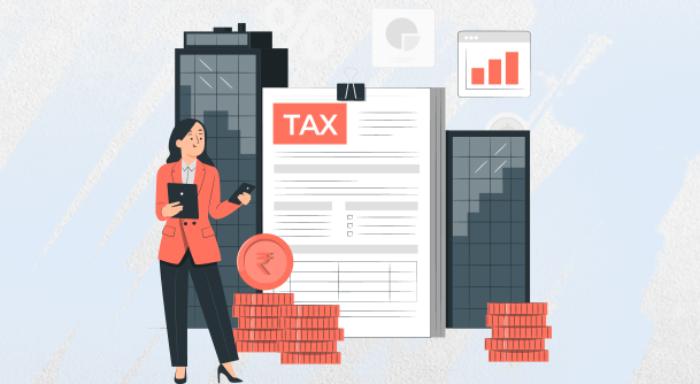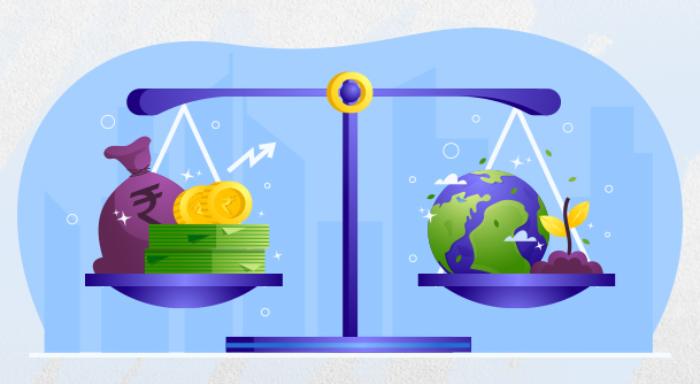Why is Term Insurance Important for Holistic Financial Planning?
Blog Title
1631 |
5/28/24 2:05 PM |
A 2023 report by RBI outlined how savings by Indian families have gone down significantly. Moreover, there are concerning signs when it comes to retirement preparedness among Indians and the presence of emergency funds as well. Needless to say, having a financial plan is the need of the hour.
You will surely get an SIP started, plus look to invest some money in PPF or FDs as a safe investment option. With savings, retirement and emergency funds covered, your financial plan will look diversified and robust. But this is still not a holistic financial plan. You should also ensure that contingencies like your untimely death do not affect the lifestyle of your family. How can you go about it?
Let us answer this by first understanding holistic financial planning.
What is Holistic Financial Planning?
A holistic financial plan provides you with a clear picture of your present financial situation (by analyzing your cash flows and your net worth) and creates a road map for your future financial objectives and how you might reach them. It helps you choose which financial products/options to invest in at different phases of your life by considering your income and expenses. To achieve financial independence, it is necessary to have a stable financial blueprint in place.
One of the most important pillars of holistic financial planning is risk preparedness and term insurance is the easiest way to complete your portfolio.
What Is Term Insurance?
Term insurance is a pure life insurance policy that ensures a sum assured (death benefit) to your nominee in case of your demise during the policy term. Term insurance has the advantage of providing a larger sum insured at a comparatively lower premium. Furthermore, the plan provides flexible options for premium payments and overall payout. You can compare various plans and their related benefits online before buying a term plan.
Here's Why Term Insurance is an Essential Part of a Financial Plan
1. It assists your family after your death: A term insurance policy provides security for your family in the event of your untimely death. Let's say, for example, that you received a mortgage loan to buy a dream property. In that scenario, in the event of your untimely death, repayment will become a burden for your parents or spouse.
It may result in serious distress that impacts your family's financial situation. To pay back the loan, your family members could have to sell whatever assets they have. Conversely, they will be able to pay off debts and cover regular costs with the lump-sum death benefit from a term plan.
2. It assists your family in accomplishing their financial goals in your absence: It helps your family reach their financial objectives in your absence. Everybody should have long-term financial goals in their lives, but they become much more crucial after marriage. For example, you should make plans to ensure that your child’s higher education is financially manageable at the desired age. In the event of your demise within the policy period, the payout from a term insurance plan will help your children meet their higher education costs without any compromises.
3. It provides life insurance at a reasonable premium: When searching for financial solutions with lots of benefits, it's also critical to determine whether they fit into your regular monthly budget. This is because purchasing such policies shouldn't have a big impact on your overall budget and other savings and investments.
Term insurance is the most popular choice when compared to other life insurance policies because it has a relatively low cost. The term insurance premium and total insured amount are determined by the insurers after reviewing your medical history. If you are young, your premium rates will be lower as you are less likely to develop serious health issues or pass away unexpectedly.
4. It includes an assured death benefit: Your family's death benefit from a term insurance plan is guaranteed, and they are not subject to outside influences like shifting market circumstances that impact market-linked returns in other investment categories. It provides a pure risk cover and aids in efficiently managing the death risk. It is also tax free under Section 10 (10D) of the Income Tax Act. You can review the specifics of the term life insurance policy to see how the payout occurs and how the sum assured is determined over the course of the policy.
5. It provides the opportunity to add riders: Throughout the insurance term, you may encounter several unforeseen expenses. Add-on riders can assist you with handling these costs. For example, if you choose to include a critical illness rider, you may get coverage for hospital stays and additional treatment costs if you are diagnosed with a critical illness within the policy term.
With the assistance of such a cover, you can be sure that medical emergencies won't have a significantly negative impact on your financial strategy.
Conclusion
Adopting a holistic approach towards financial planning means integrating term insurance with your financial plan. Before proceeding with any term policy, you should ensure that you select the right coverage amount, keeping your family's future needs in terms of household expenditure, debts and liabilities, and the cost of your child's higher education and
other life goals in mind. Do not forget to adjust the amount for inflation and then select life coverage accordingly. The amount should be sufficient to meet all these requirements with ease.
Chirag Iyer - BFSI Enthusiast
Chirag is a writer and an avid reader who loves to drink coffee! His other interests include boxing, karate, and singing.










